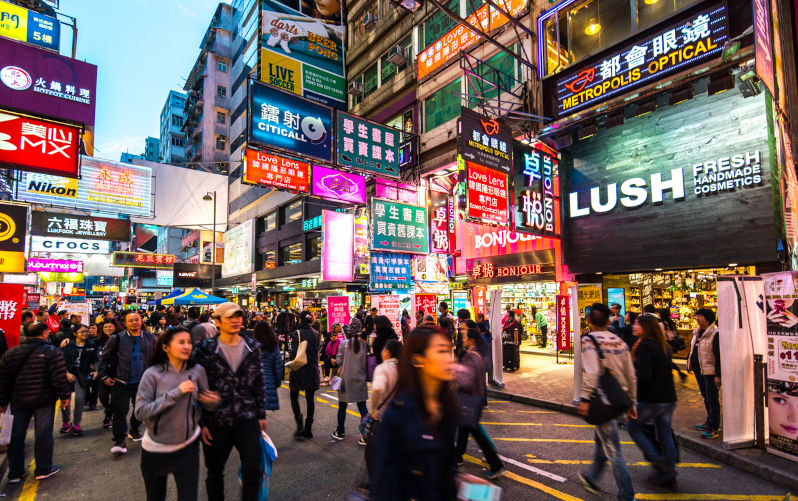Hong Kong is losing competitiveness to cities on the mainland
March 17, 2024
The danger Hong Kong faces is not that it might become just another mainland city, but that it is already subpar to many of its urban cousins across the border.
People always fret about Hong Kongs eroding competitiveness compared to other leading Asian cities. But the clear and present danger may be its lack of competitiveness against other major mainland cities, especially those in the Greater Bay Area. Its not that it is in danger of becoming just another mainland city; if only that were so. Rather, its already subpar to its urban cousins across the border.
Witness the exodus of local people travelling en masse to shop and dine in Shenzhen and other nearby places. Just a few years ago, many of them wouldnt dream of setting foot in mainland China, as they tried to lay waste to Hong Kong in a frenzy of rebellion and destruction against the local and central governments, in riots even worse than those against the colonial government in 1967.
Now, many have thrown caution to the wind and no longer fear being followed, tracked, surveilled or even detained and jailed, supposedly. Mainland shops, restaurants and cinemas are just too good, cheap and attractive for them to worry about all that now.
Change the narrative and you change the whole picture. Never say political restrictions do not work. Once you have neutralised the anti-government opposition and got rid of their foreign supporters, Hong Kong people go where they naturally would have gone. Once artificial barriers are removed, water flows where it naturally goes to find its levels.
So now they embrace a new cross-border lifestyle they once rejected. High-speed rail and the Hong Kong-Zhuhai-Macau Bridge have cut travel times to less than an hour. A new Costco wholesale store has become practically a tourist attraction for Hongkongers. Malls, restaurants and neighbourhood shops are better and cheaper, and offer more variety than those in Hong Kong.
Not too long ago, people in Hong Kong complained about mainland visitors and called them names such as locusts, for swarming shopping districts and buying up everything, from baby milk formula to properties. Now the shoe is on the other foot; they are jamming the streets of Shenzhen. But mainlanders tend to be far more tolerant and magnanimous.
More Hongkongers are going north not only for shopping, but also for work. According to a Hong Kong Guangdong Youth Association survey from last year, 66 per cent of Hongkongers under the age of 40 would not mind working on the mainland, up from just 22 per cent in 2020. Mainland wages may be lower but so is the cost of living.
More Hong Kong people visited Shenzhen last month than at any other time since records began in the mid-1980s. Meanwhile, fewer visitors are coming to Hong Kong and, those who do, spend much less than before.
Shenzhen and the rest of Guangdong province are just more enticing than Hong Kong. Our Chief Executive John Lee Ka-chiu likes to say mainland integration is a win-win for both sides. But its starting to look like a win-lose. And we all know who the loser is.
Hong Kong may yet retain its status as a key regional financial services and intermediation hub. But in the past two decades, it made itself the centre of global attention for all the wrong reasons. Instead of educating themselves and discovering and making the most of their talents, many young people, misled by some local opposition politicians and foreign influences, preferred to destructively pursue what they called democracy.
All that time, Shenzhen quietly developed and became a leading regional tech hub, with a gross domestic product that now exceeds that of Hong Kong.
Its only natural that the city is being swallowed up by the mainland and overshadowed by Shenzhen. Unless Hong Kong learns to up its game, it will be no more than an appendage to Shenzhen it used to be the other way around and a footnote to the development of the Greater Bay Area.
Republished from the South China Morning Post, March 12, 2024

